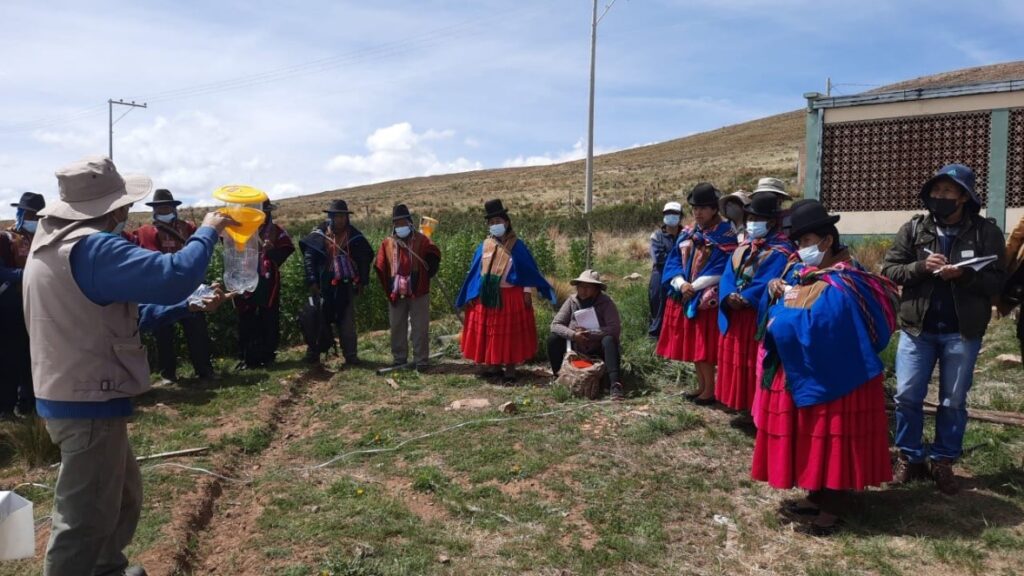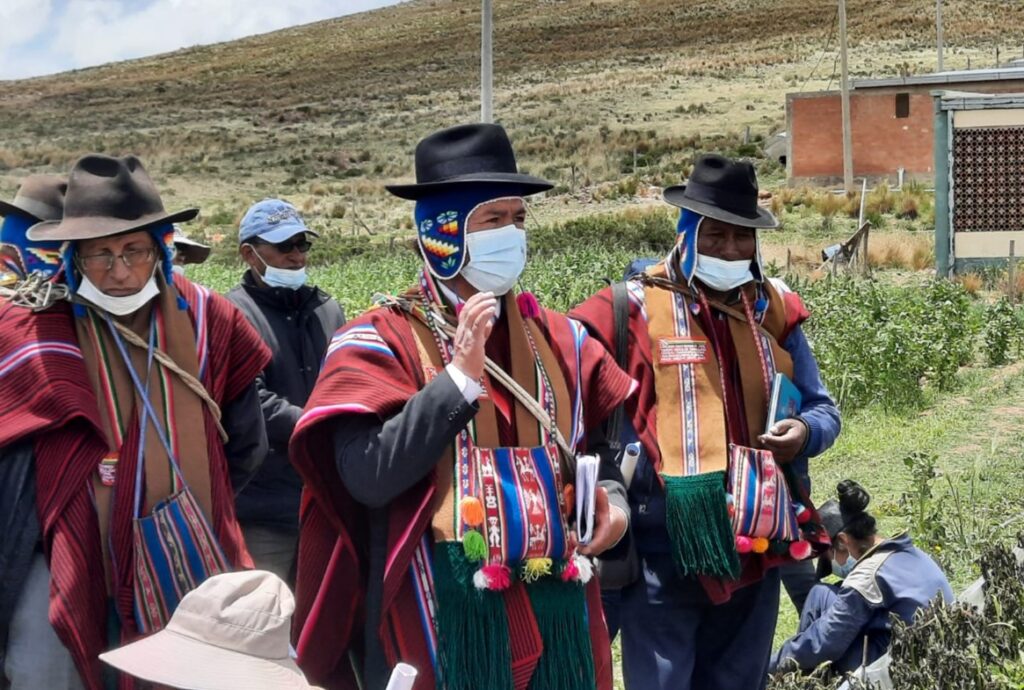On January 17, 2023 at the Kiphakiphani Center of the PROINPA Foundation, located in the municipality of Viacha in the department of La Paz, researchers from the Foundation shared knowledge about the control of insect pests in quinoa and potato crops with farmers. from the communities of Choquenaira, Irpuma, Irpa Grande, Charawaitu and students from the Faculty of Agronomy of the Universidad Mayor de San Andrés.

In quinoa, the importance of knowing the life cycle (egg, larva, pupa and adult) of the pest insects "Ticona and quinoa moth" was highlighted. Many farmers were unaware of the existence of two of the stages: egg and pupa, by observing and participating they increased their knowledge.
For the control of Ticona and quinoa moth, the use of traps with pheromones was presented, it was explained that the traps and pheromones are specific for each pest insect, and must be installed after quinoa planting, with the purpose of capturing to adult males before they can mate with females, thereby reducing the insect population.

In the potato crop, the main pest in the highlands "Andean weevil" was discussed, the life cycle was shown (egg, larva, pupa and adult). For control, a new practice was shown in the area, the plastic barrier, a fence made of plastic and wooden stakes around the potato plot, with the objective of preventing the entry of adult weevils into the plot and reducing the population that attacks potatoes. the potato plant During the training, the need arose to talk about how to recover the plants from the frost, several important practices were expressed to be revalued, such as the use of tolerant varieties, the stirring of fire at night near the plot to heat the environment, the planting on mountain slopes and others. Likewise, there was a discussion about the possibility that the seeds of native potatoes are tired because they are sick with viruses, and that they need to be cleaned of these viruses, so that they can increase their yield.

Finally, the quinoa breeding trials were visited, the researchers explained the importance of wild quinoa for crossing with cultivated quinoa, which can result in obtaining short-cycle quinoa varieties, being an alternative for escape in the absence of of rains during the planting season (September and October).
The farmers thanked the PROINPA Foundation and the SATREPS Quinua project "Strengthening the resilience of arid agroecosystems vulnerable to climate change, through research on plant resources and technological applications«, for organizing the training event, and they asked that activities like this be repeated more frequently due to their importance. They highlighted that the new knowledge in Andean agriculture must be shared among all researchers, technicians, students, farmers and authorities to better think about how to be more resilient to climate change.
